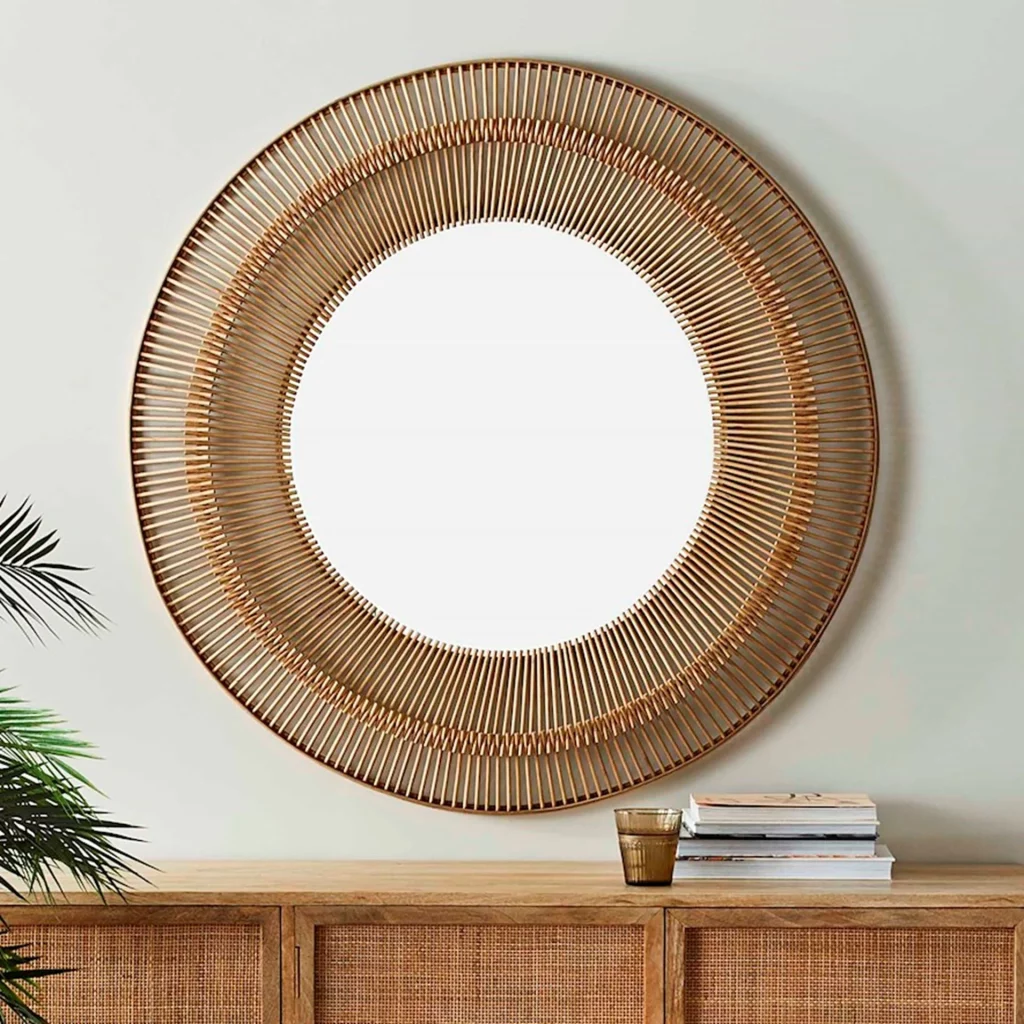Mirrors, often seen as mere utilitarian objects, possess a unique ability to influence our perception of space and self. Beyond their practical purposes, mirrors play a psychological role in shaping our emotions, enhancing well-being, and contributing to the ambiance of a room. In this blog post, we’ll delve into the psychology behind reflective spaces and how mirrors can be strategically used to create a positive and harmonious environment.
- The Illusion of Space:
Mirrors are renowned for their capacity to create the illusion of space. In smaller rooms or cramped areas, strategically placing mirrors can visually expand the environment, making it feel more open and airy. This optical illusion not only enhances the physical dimensions of a space but also contributes to a sense of freedom and relaxation.
- Natural Light Amplification:
Harnessing natural light is crucial for a positive and vibrant atmosphere. Mirrors excel at amplifying natural light, spreading it across the room and reducing the need for artificial lighting. This not only saves energy but also promotes a brighter, uplifting mood. Consider placing mirrors near windows or opposite light sources to maximize this effect.
- Reflecting Personal Style:
Mirrors serve as a reflection of more than just our physical appearance; they mirror our personal style and design preferences. When choosing mirrors for your space, consider frames, shapes, and sizes that align with your taste. A curated mirror selection not only enhances the aesthetic appeal of a room but also provides a glimpse into your unique personality.
- Fostering Self-Reflection:
Beyond their impact on the environment, mirrors facilitate self-reflection. In bedrooms and dressing areas, full-length mirrors become a tool for self-expression and self-assessment. Creating a positive and well-lit space for self-reflection can contribute to improved self-esteem and a sense of personal well-being.
- Mirrors and Emotional Resonance:
Mirrors hold the power to evoke emotions and set the tone of a room. Antique mirrors with intricate details may infuse a sense of nostalgia, while sleek, modern mirrors contribute to a contemporary and streamlined atmosphere. Understanding the emotional resonance of different mirror styles allows you to craft spaces that align with your desired ambiance.
- The Feng Shui Connection:
In the realm of Feng Shui, mirrors are considered powerful tools for energy flow. Strategically placing mirrors can redirect and enhance positive energy, creating a harmonious and balanced environment. Explore the principles of Feng Shui to incorporate mirrors seamlessly into your home design, promoting both physical and emotional well-being.
Conclusion:
Mirrors transcend their role as mere accessories, becoming key players in the emotional and psychological dynamics of a space. By understanding and harnessing the psychology behind reflective surfaces, you can transform your home into a sanctuary that not only looks appealing but also feels harmonious and uplifting. So, the next time you hang a mirror, remember that it’s not just reflecting light – it’s reflecting a piece of your emotional landscape.


